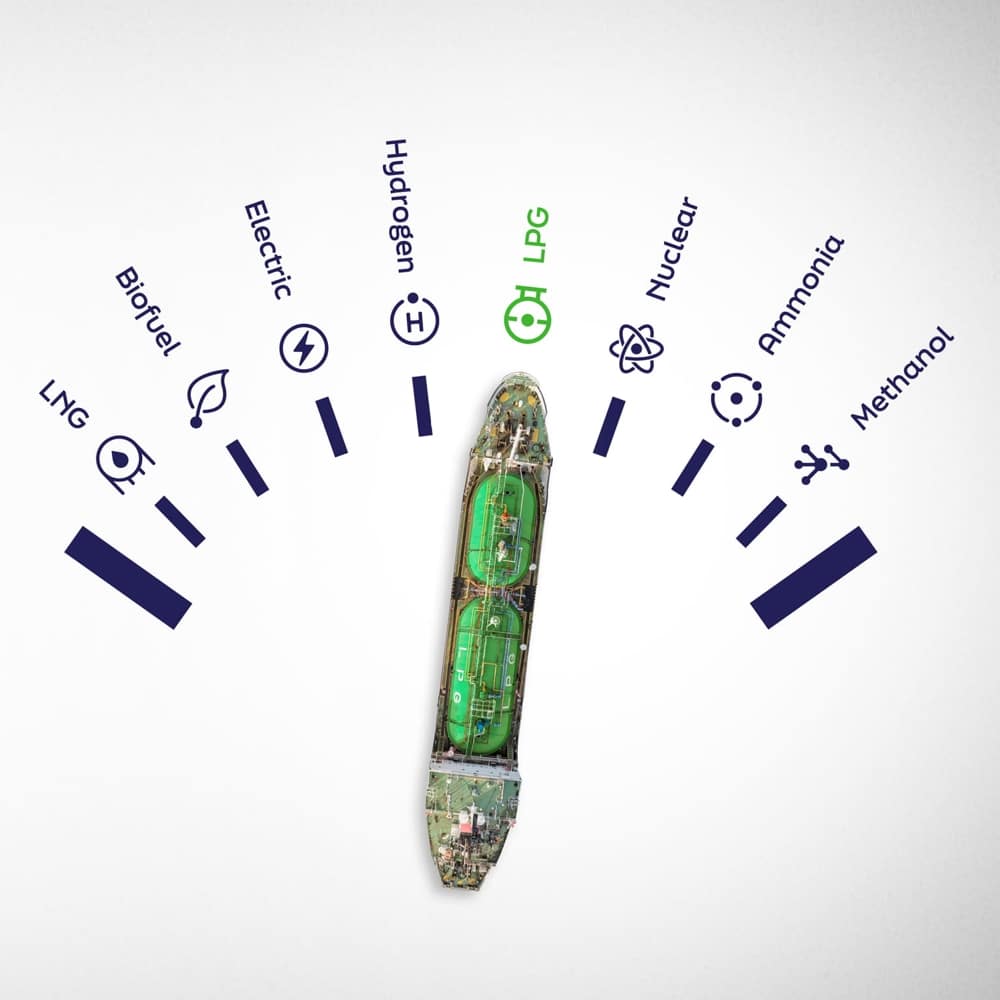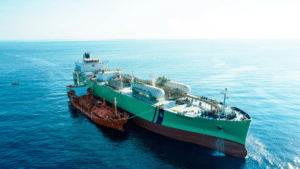Potential of readily available LPG offers route to low-carbon propulsion for multiple vessel types
LPG points to cost, availability, and lifecycle assessment benefits of LPG as a marine fuel.

Using LPG as a marine fuel holds significant promise for reducing carbon emissions, especially when combined with other technologies aimed at cutting emissions and saving energy. This supports shipowners in meeting increasingly stringent regulations in the coming years.
In their joint report “Fuel for Thought,” Lloyd’s Register (LR) and the World Liquid Gas Association (WLGA) highlight the growing market for dual-fuel LPG engines, driven by a robust orderbook. LPG presents itself as a cleaner marine energy source with lower carbon emissions compared to many existing alternatives.
According to the report, employing LPG as a marine fuel alongside technologies like Onboard Carbon Capture and Storage (OCCS) can notably reduce a vessel’s emissions footprint. This is complemented by decreased CO2 storage needs due to lower emissions from LPG combustion, enhancing the effectiveness of such technologies and providing shipowners a pathway to regulatory compliance.
However, the report underscores the necessity for advancing technology readiness to make LPG a feasible option for shipowners aiming to transition to low and zero-carbon vessels. While LPG is well-established, the range of available engine technologies must expand to enable widespread adoption across various vessel types. Currently, the absence of a four-stroke marine engine capable of using LPG means auxiliary engines on vessels would require decarbonization through an additional fuel source.

Furthermore, a secure bunkering framework needs development to encourage broader uptake of LPG. Regulatory frameworks are still in their early stages, with recent interim guidelines published by the IMO.
Panos Mitrou, Global Gas Segment Director at Lloyd’s Register, emphasized the critical role of renewable LPG production in driving broader adoption of LPG as a marine fuel. He highlighted that supportive energy-saving technologies, alongside maturing onboard carbon capture and storage capabilities, will further bolster LPG’s attractiveness as a low to zero-carbon fuel option. This could potentially offer cost advantages over other alternative fuels as shipowners seek to decarbonize their fleets in compliance with stricter regulations.
Nikos Xydas, Technical Director at the World Liquid Gas Association, described LPG as a pivotal energy source for decarbonizing the shipping sector. He noted its recognized benefits of lower emissions and highlighted the increasing orders for LPG-fueled ships, signaling its expanding role in the industry. As global decarbonization efforts intensify, LPG emerges as a versatile fuel choice for all types of vessels, providing a cleaner alternative today and a pathway towards even cleaner options in the future. Its flexibility, environmental benefits, and cost-effectiveness position LPG as a promising fuel in shipping, paving the way for cost-effective deep-sea decarbonization with the potential advent of bio/renewable LPG.
